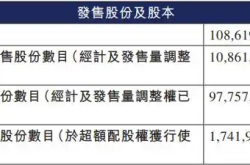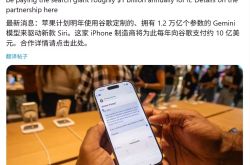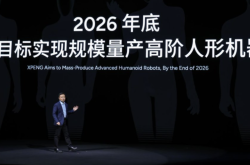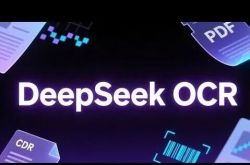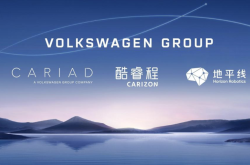Silicon Valley Giants Offer $100 Million to Recruit Chinese AI Scientists
![]() 07/07 2025
07/07 2025
![]() 670
670
In the battle for AI talent, Zuckerberg's recent actions serve as a prime example of strategic recruitment.
After acquiring Scale AI, founded by post-95 Chinese-American genius Alexandr Wang, for $14.8 billion, Zuckerberg swiftly announced the establishment of the "Meta Super Intelligence Lab" (MSL) within two weeks. This lab integrated core AI resources such as Meta's FAIR research team and Llama model development group, with Wang appointed as its leader.
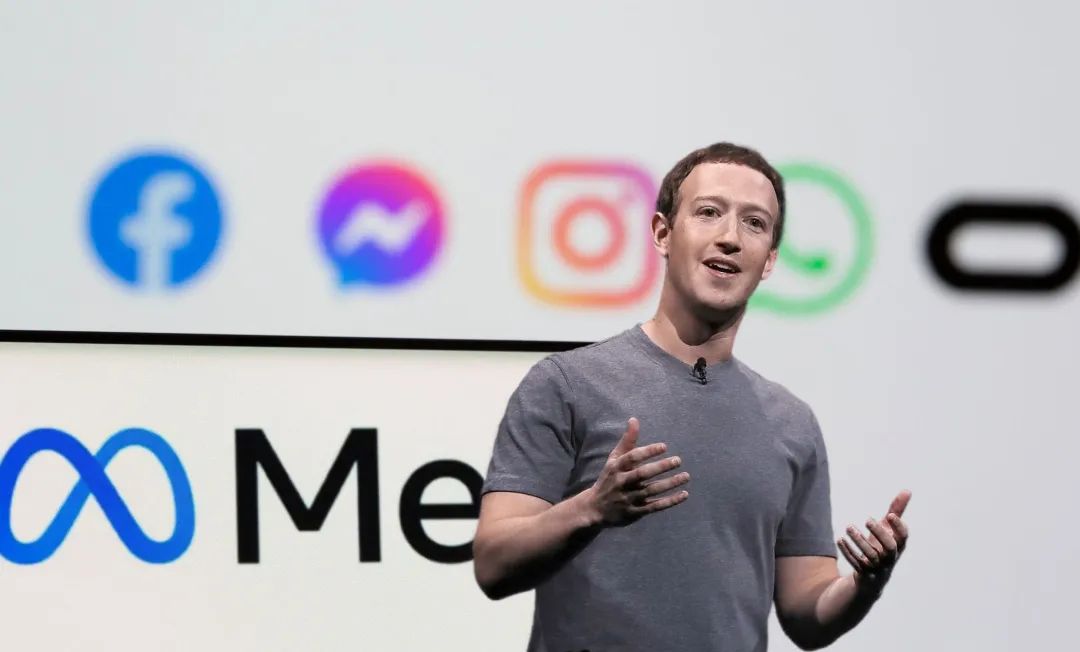
Zuckerberg poached the lab's core talent from OpenAI, a move that stirred up the industry.
According to insiders, Meta recruited eight top Chinese AI scholars from OpenAI overnight through an aggressive recruitment strategy. These scholars are technical leaders in strategic areas such as multimodal models, speech interaction, and reinforcement learning. Rumors suggest they received a compensation package of $100 million (cash + stocks), though this has not been officially confirmed.
Zuckerberg personally implemented the "CEO direct recruitment" model, sorting through lists of top global AI researchers and meeting candidates at his private residences in Palo Alto, California, and Lake Tahoe. He even opened a "green channel" for key talent to bypass interviews.

This unconventional decision-making mechanism significantly shortened the recruitment process, with some core members joining within 72 hours from first contact to formal signing.
Zuckerberg's talent competition has sparked a chain reaction in the industry. Tech giants such as Google and NVIDIA are now joining the fray with substantial investments, shifting the global AI competition's focus to Chinese AI talent.
Global Rush to Recruit Top Chinese AI Talent
Zuckerberg's "poaching" action is noteworthy—the Chinese scholars recruited from OpenAI come from top domestic universities like Tsinghua and Peking University and have core algorithm experience at tech giants like OpenAI and Google. Some have led ChatGPT development, while others are responsible for autonomous driving perception systems, making them a "dream team" in the AI industry.
Specifically, the backgrounds of the recruited scholars are highly representative:
Shuchao Bi: Bachelor's degree from Zhejiang University, Ph.D. from the University of California, Berkeley. Previously, he was the Engineering Director at Google and co-founder of YouTube Shorts, serving as the head of multimodal post-training at OpenAI.
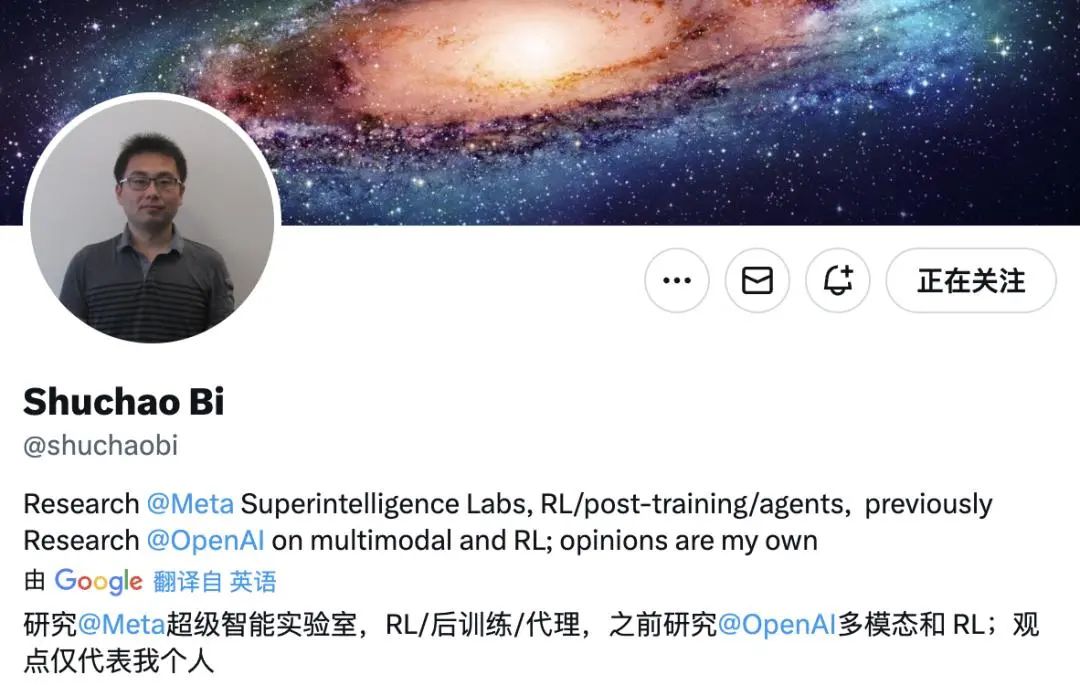
Shengjia Zhao: Bachelor's degree from Tsinghua University, Ph.D. in Computer Science from Stanford University. He joined OpenAI in 2022 as a Research Scientist, leading the training optimization of large language models and making key contributions to the o1-mini and o3-mini models. Despite their small size, these models are extremely fast in inference speed, with o1-mini even outperforming the larger o1-preview model on mathematical tasks last fall.
Hongyu Ren: Bachelor's degree from Peking University, Ph.D. from Stanford University. As the creator of o3-mini and o1-mini, and the head of GPT-4o mini, he is a core contributor to GPT-4o. He led the language model training optimization in the OpenAI post-training team. In 2018, he co-authored a research paper with Shengjia Zhao on bias in generative AI models, proposing a new analytical framework for the generalization ability of deep generative models.
Jiahui Yu: Bachelor's degree from the Young Gifted Program at the University of Science and Technology of China, Ph.D. from the University of Illinois at Urbana-Champaign. Before joining OpenAI, he worked at Baidu, NVIDIA, and Google DeepMind, serving as the co-lead of the visual team for the Gemini multimodal project from 2022 to 2023. After joining OpenAI in October 2023, he led the perception team in projects such as o3, o4-mini, GPT-4.1, and GPT-4o, focusing on AI environmental information collection and understanding.
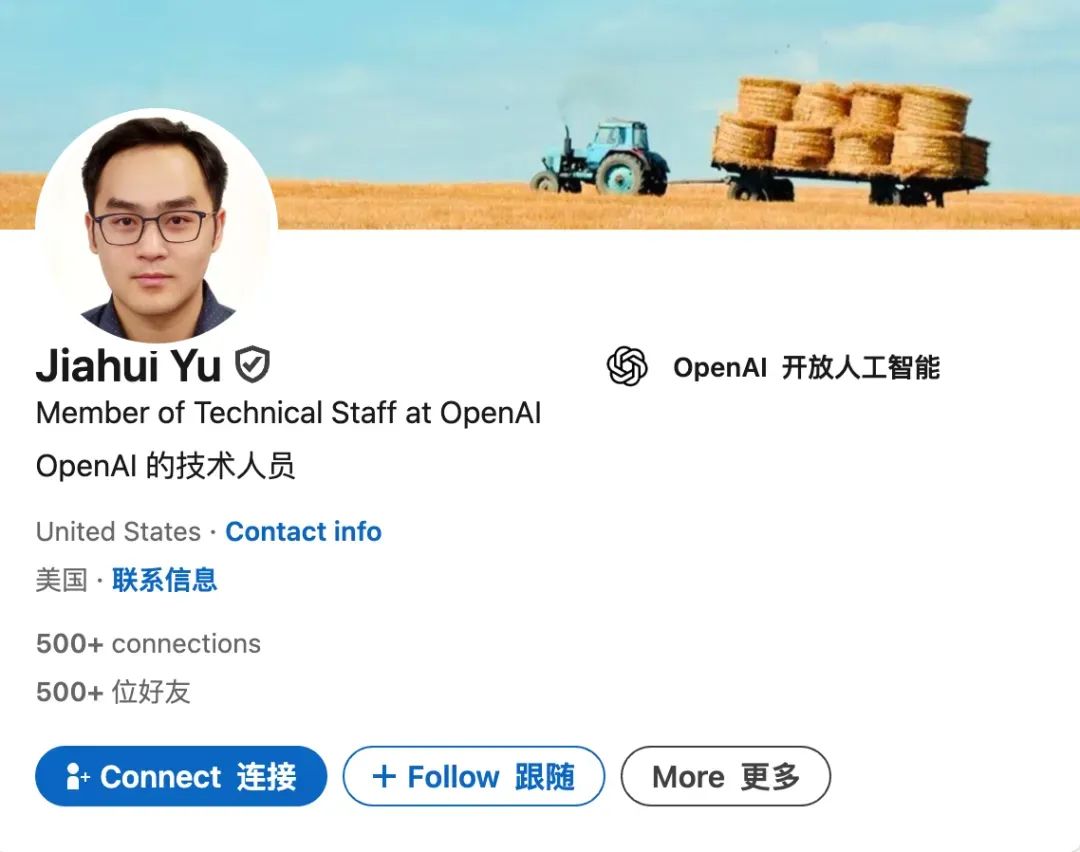
Other Chinese nationals recruited include HuiWen Chang, Ji Lin, and Pei Sun.
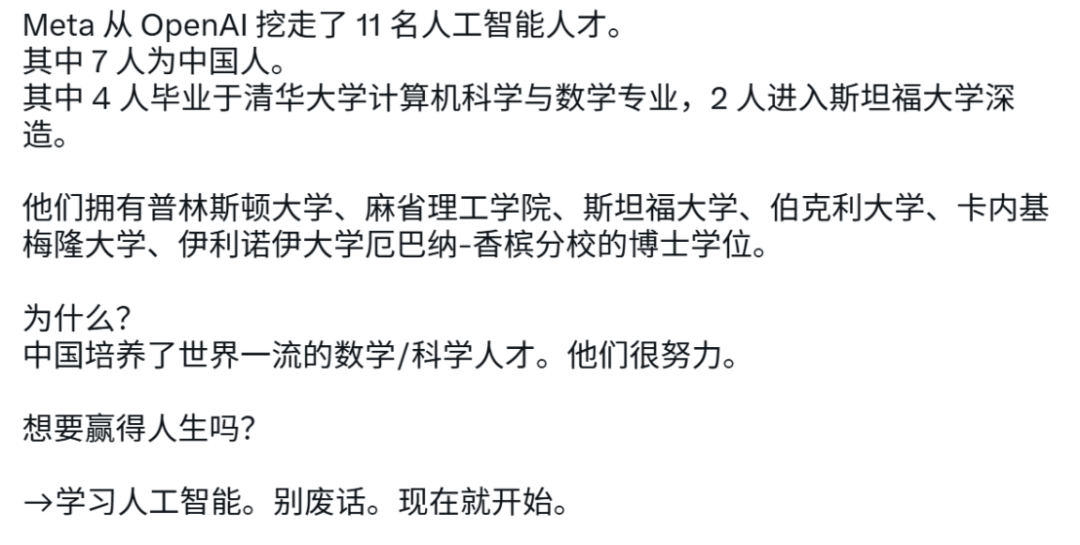
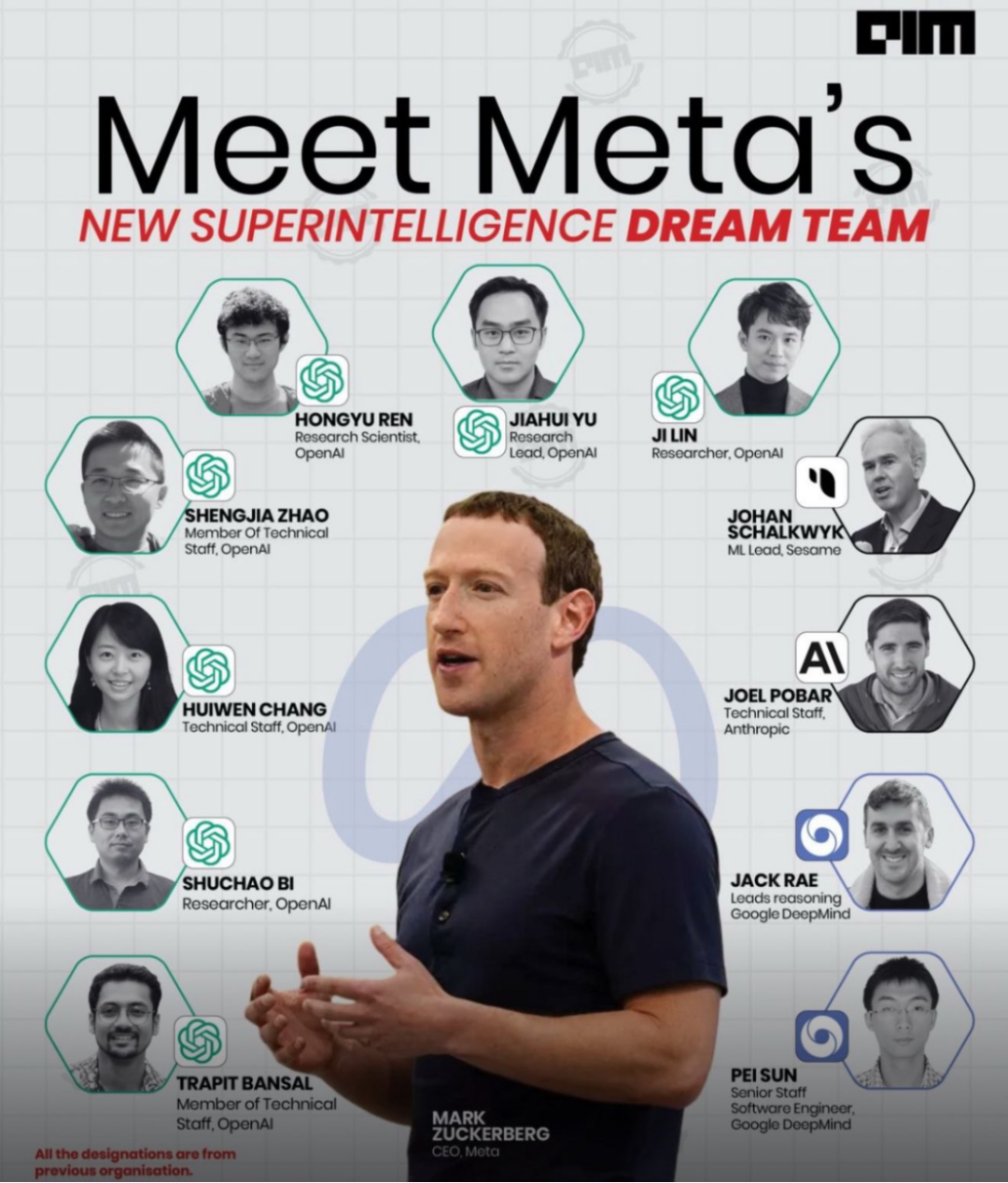
However, regarding the rumor of a $100 million annual salary for the recruits, CTO Andrew Bosworth subsequently debunked it online, stating that such high compensation only applied to a very small number of senior positions. "I know exactly why he said that: because we did successfully attract some talent from OpenAI, and he's obviously not happy about it."
Data from Levels.fyi shows that Meta's regular E7-E9 engineers earn annual salaries ranging from $1.5 million to $5 million, but a 1.5x premium may be paid for poaching. Independent analysts estimate that the actual compensation package for the poached OpenAI researchers is around $5 million to $10 million per year, still a significant leap even without reaching $100 million.
Currently, AI technology has entered the "post-Moore's Law" era, where simply increasing parameter scale yields diminishing returns. Innovation now relies heavily on algorithmic breakthroughs and engineering optimizations.
This shift in technological paradigms has intensified the fierce talent competition among global tech giants, pushing up the value of top talent. In this competition, Chinese scientists have emerged as a core force.
Traditionally, Indians have dominated project management and commercial implementation in Silicon Valley. However, the AI era's technological logic has overturned this pattern. Faced with complex mathematical problems like the Transformer architecture, the role of 10 ordinary programmers cannot match that of one top scientist.
As NVIDIA CEO Jen-Hsun Huang noted, "50% of the world's AI researchers come from China; Chinese researchers are active in every AI lab in the United States, without exception."
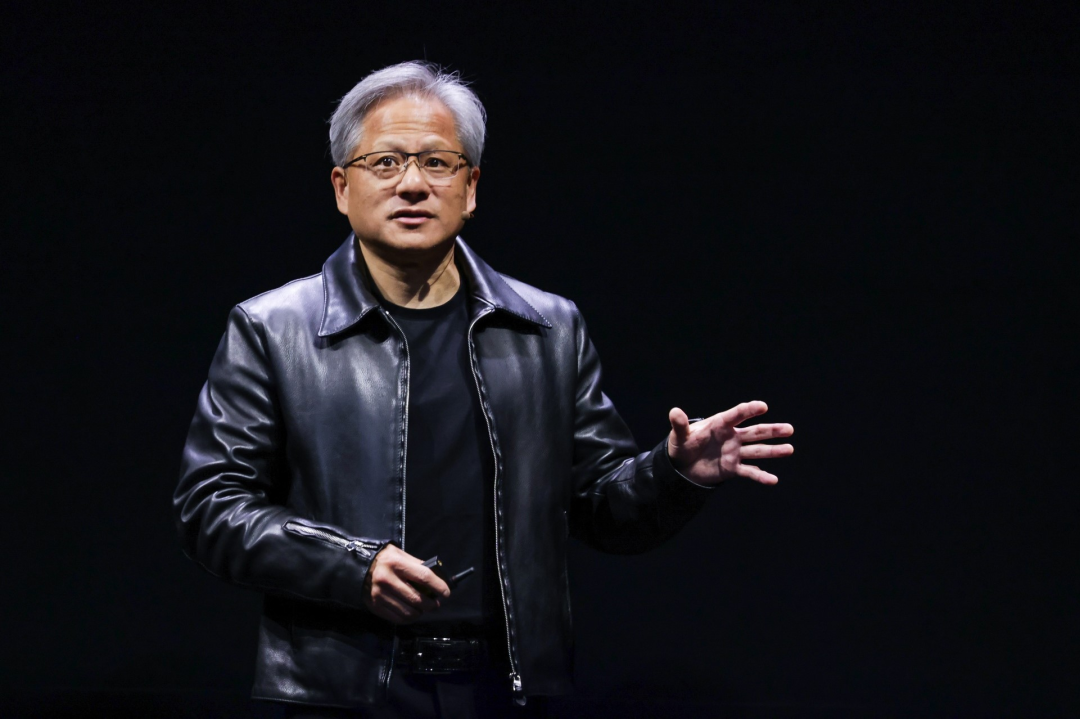
The recent actions by tech giants underscore the intensity of this talent war.
When OpenAI faced a talent crisis, Musk announced the release of Grok 4 this month and revealed plans to build a dedicated programming model. One-third of his xAI founding team are Chinese.
NVIDIA, the global leader in AI chips, has also seen its founder Jen-Hsun Huang personally joining the talent hunt, quietly recruiting two Chinese AI luminaries.
One is Banghua Zhu, who graduated with a Bachelor's degree in Electrical and Electronic Engineering from Tsinghua University in 2018 and received his Ph.D. in Electrical Engineering and Computer Science from the University of California, Berkeley, in 2024. In 2023, he co-founded Nexusflow AI with Jiantao Jiao, dedicated to providing reliable AI agent solutions for enterprise-level application scenarios. After joining NVIDIA, he will serve as a Principal Research Scientist in the Star Nemotron team, focusing on applied research in enterprise-level AI agents. He is also one of the founding authors of the large model arena LMArena.
Another heavyweight scholar, Jiantao Jiao, also officially announced his joining of NVIDIA at the same time.
He graduated from Tsinghua University's Department of Electronics and obtained his Ph.D. from Stanford University in 2018. He is currently an Assistant Professor in the Department of Electrical Engineering and Computer Science and the Department of Statistics at the University of California, Berkeley, with research interests spanning foundational models, generative AI, machine learning, reinforcement learning, game theory, multimodal applications, and other cutting-edge directions.
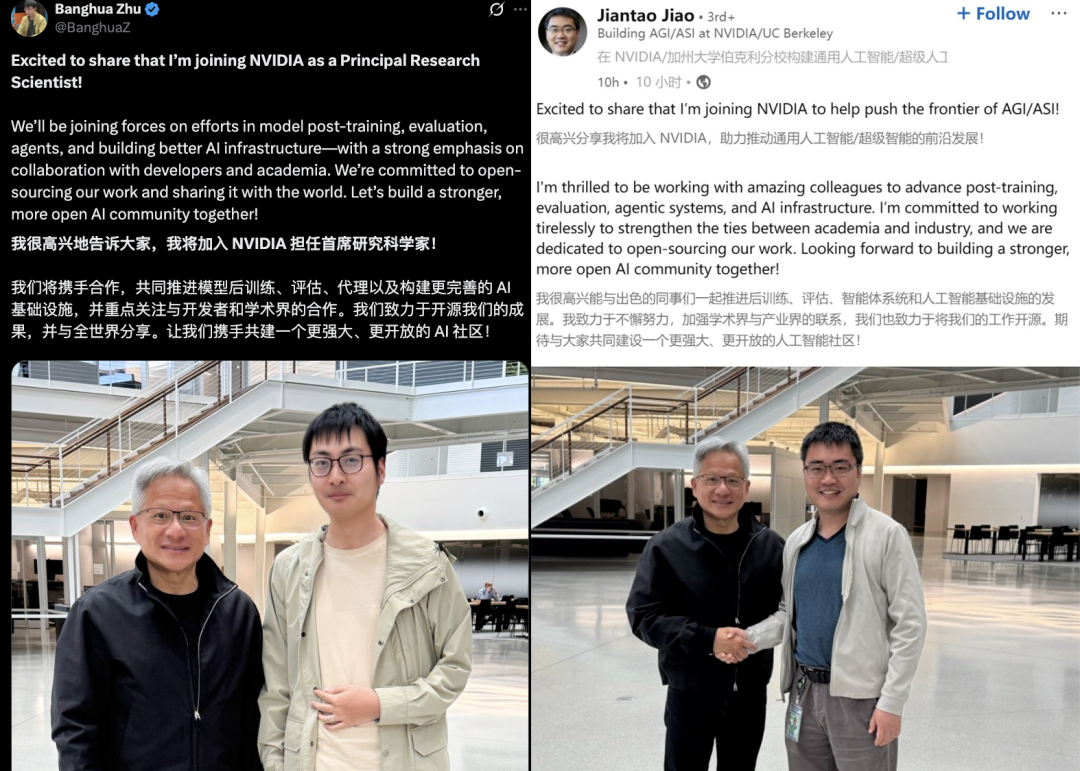
Google has also been busy, recently inviting top Chinese AI scientist Kaiming He, the inventor of the cornerstone of unmanned AI models Riston NE, to join its DeepMind team part-time. Kaiming He joined MIT in 2024 and was awarded a tenured faculty position (associate professor) at MIT in June 2025 at a young age, achieving remarkable results.
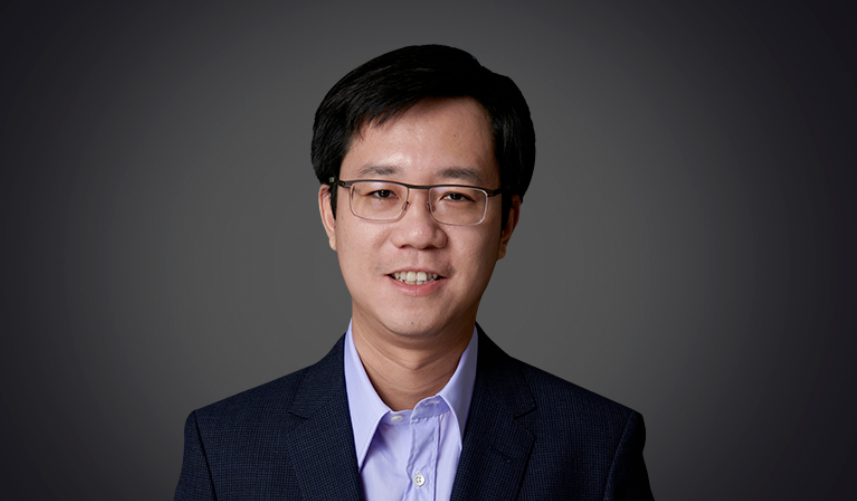
Data reveals a startling reality: the 2023 AI Index Report shows that 47% of the world's top AI researchers come from China, and Chinese represent 75% of top AI talent in the United States.
The "Chinese Bachelor's + American Ph.D." training model has become the standard path for AI elites in Silicon Valley. According to the Global AI Talent Tracker Report 2.0, among the top 20% of AI talent globally in 2022, those originating from China accounted for 38%, surpassing the 37% from the United States.
As Jen-Hsun Huang said, "China, with 20% of the world's population, has produced 50% of the world's AI talent." The advantages of Chinese basic education are evident here—despite criticism of being "exam-oriented," its strong foundation in mathematics and science has cultivated a large pool of talent with innovative potential. However, this comes at a cost, as screening out top talent means a large number of students are forced into the screening process.
Yet, a severe reality cannot be ignored: McKinsey predicts that by 2030, China will face a shortage of 4 million AI talents, with low-threshold positions becoming saturated while high-end positions are severely lacking. Additionally, since the Trump administration, the US crackdown on Chinese AI has focused on talent, from restricting NVIDIA's supply of AI chips to China to banning the provision of chip design software, with the core goal of curbing China's AI development.
Even more alarming is the continuous outflow of top talent overseas—among the top graduates each year, some of the best students still choose to continue their studies in the United States.
The good research environment, funding, and freedom in the US attract many global talents to study and train there. Instead of blaming individual choices, we should reflect on how the research system of domestic universities can retain a large number of top talents.
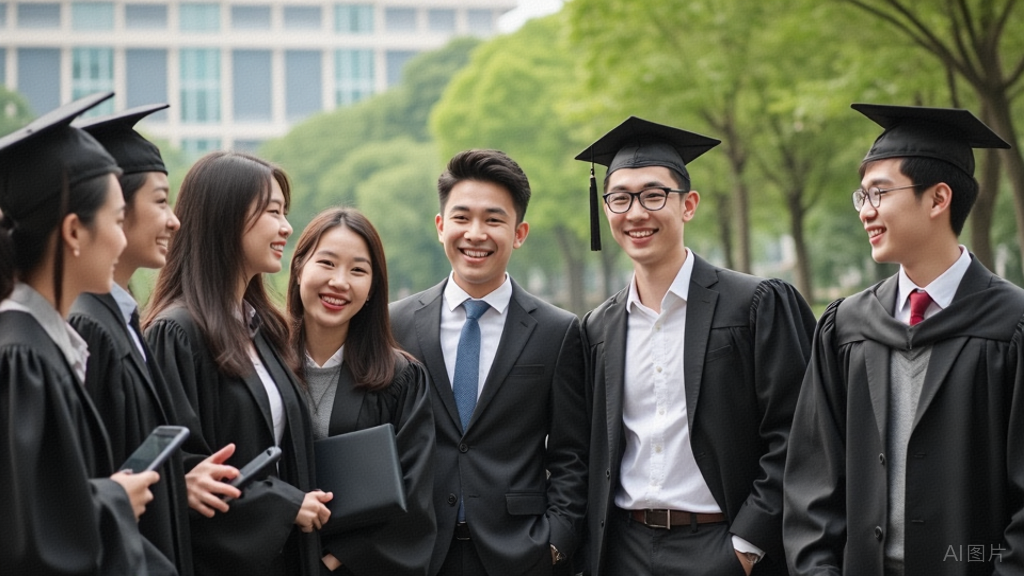
Top talent can be equivalent to 100 or even 1000 ordinary talents, especially in basic research. Many excellent graduates also continue their research in top Chinese enterprises, and it's uncertain which will develop better in the future.
In response, domestic enterprises are rising to the challenge: during the spring recruitment season in 2025, Tencent, Alibaba, and Baidu increased their recruitment of algorithm engineers by 46.8% year-on-year, with an average monthly salary of RMB 23,500, and even higher at RMB 24,000 for deep learning positions.
Even startups like Unitree Robotics offer high salaries of RMB 70,000 per month for AI algorithm positions, while Guangdong Shenwu Technology provides generous conditions of "free two-bedroom apartments + an annual salary of RMB 400,000-700,000."
Additionally, Tencent held the "AI Algorithm Competition" with a prize pool of RMB 50 million, attempting to uncover top global talent through competition.
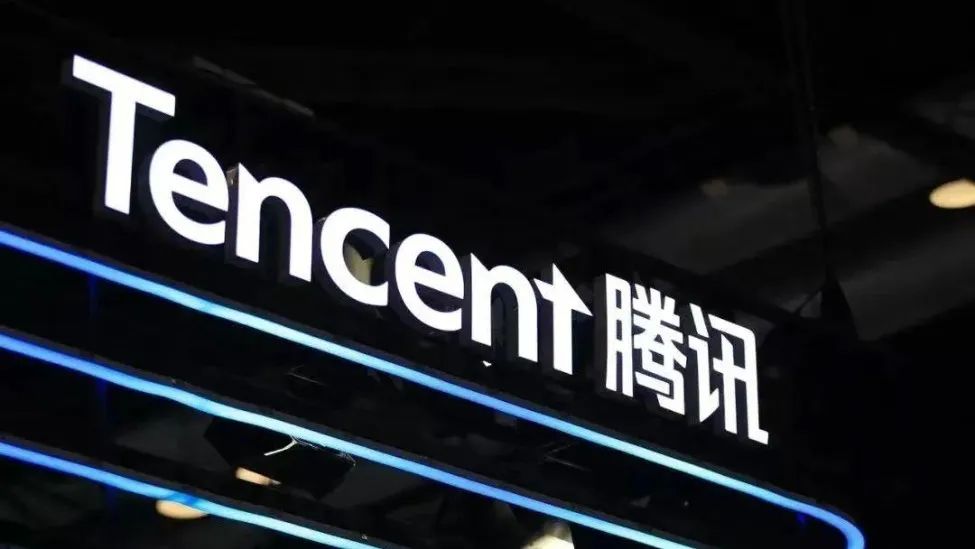
However, the gap is still significant compared to giants like Meta and Google. Whether it's compensation for top scientists, the research environment, or international influence, domestic enterprises still need long-term accumulation.
Musk once said, "This is the craziest talent war I've ever seen." In this fierce global AI talent competition, Chinese scientists have become the sought-after "hotcake" with their solid professional competence and innovative ability.
But how to retain and give full play to these top talents, build a talent ecosystem with international competitiveness, and keep China in the lead in the global AI race remains a key issue that needs to be resolved urgently.
A Fascinating Game with High Salaries as the "Bait"
Regarding Meta's poaching behavior, Mark Chen, Chief Research Officer of OpenAI, compared it to "someone breaking into our home to steal things," expressing clear resentment.
Subsequently, Chen sent a strongly worded memo to all employees: "We are being more proactive than ever, adjusting compensation, and finding innovative ways to recognize and reward top talent."
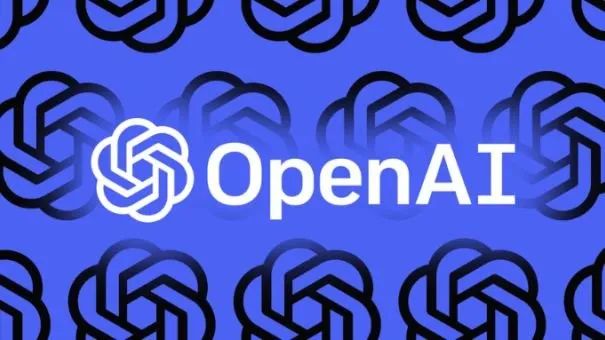
In addition to promising to adjust the compensation system, OpenAI announced that employees would work from home from June 30 to July 6, while management worked overtime to deal with the talent crisis. Although it was nominally to ease the pressure on employees from working over 80 hours a week, insiders revealed that the real purpose was to prevent rumors of resignation from spreading in the office, causing wider unrest among employees.
The direct trigger of this sudden poaching crisis was the underperformance of Meta's self-developed large model Llama 4 in early 2025. Zuckerberg once stated, "I want Meta's AI to surpass Google and OpenAI and become the world's number one by 2027."
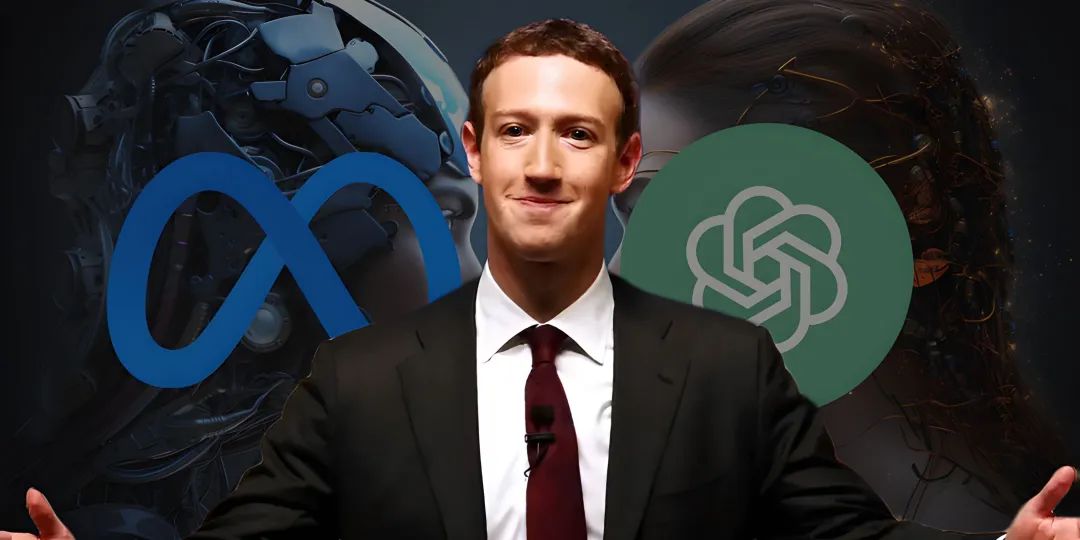
The setback of the Llama 4 project left Zuckerberg "extremely disheartened." In response, the CEO swiftly altered his strategy, opting to pursue breakthroughs across multiple domains by attracting top-tier talent, rather than relying solely on a single model.
Meta's investment in AI epitomizes "purchasing time with capital." Beyond the billions annually spent on chip, data center, and algorithm R&D, the company is now lavishly recruiting promising Chinese AI talents.
However, salary incentives are merely the tip of the iceberg; the deeper allure lies in scientific autonomy and resource guarantees. An insider close to OpenAI revealed intense internal debates over computing power allocation, with "critical projects waiting in line and marginal research finding it even harder to secure support."
In contrast, Zuckerberg vowed that "Meta will invest tens of billions in AI over the next few years," promising "unlimited advanced computing resources" for the MSL team—a compelling offer for OpenAI researchers grappling with GPU shortages.
Behind this exodus of talent lies a long-simmering issue at OpenAI.
The 2024 reorganization shifted core operations to a for-profit entity, with the non-profit board retaining a minority stake, fully embracing commercialization. Led by CEO Sam Altman, the commercialization faction urges accelerated product iteration and profitability, demanding "major product launches every few months," overwhelming researchers with short-term goals.
John Schulman, who spearheaded ChatGPT's development, candidly expressed upon his departure a desire to "return to actual technical work," subtly criticizing OpenAI's growing bureaucratic tendencies.
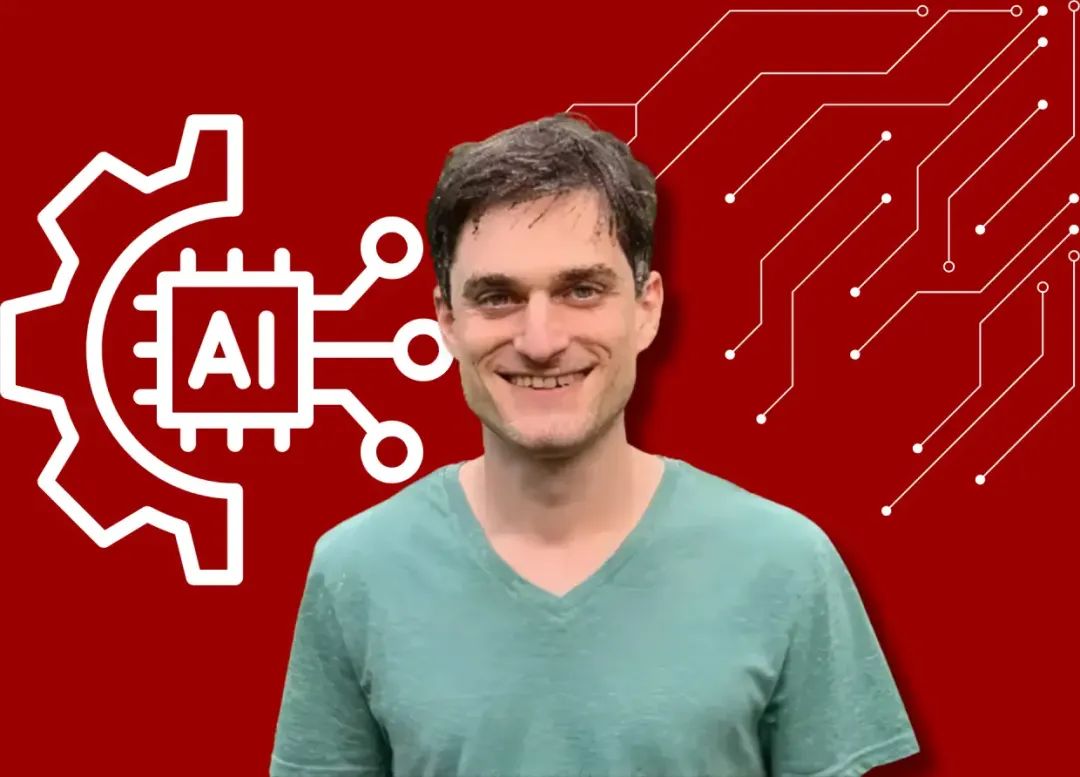
John Schulman
An inequitable compensation system has exacerbated the brain drain. Despite a $150 billion valuation, OpenAI's unique "profit cap" structure restricts employee returns, initially capping investor returns at 100x, later revised to a 20% annual increase.
As Meta poaches technical leaders with substantial offers, OpenAI is only now waking up to the reality. The exodus of core leaders not only slows the iteration of OpenAI's o-series lightweight models but also threatens the continuity of its multimodal technology development.
For Meta, this "new blood vs. old guard" scenario is not entirely rosy. By integrating OpenAI talent, Meta aims to bolster its generative AI application layer; the synergy of Scale AI's data annotation prowess and Wang's algorithm team could spawn a GPT-alternative pathway.
However, whether this "hybrid edge" surpasses OpenAI remains uncertain and has sparked discontent within Meta, with veterans resenting the 2-3x salary hikes for external "superstars," implicitly devaluing the existing team.
Zuckerberg lavishly acquired Alexander Wang, whom he deems "the most exceptional entrepreneur among his peers." Who exactly is he?
Zuckerberg sings high praise for Wang: "I believe he stands out among his entrepreneurial peers. He profoundly understands the historic significance of superintelligence. As co-founder and CEO, he has built Scale AI into a rapidly growing company integral to nearly all industry-leading models."
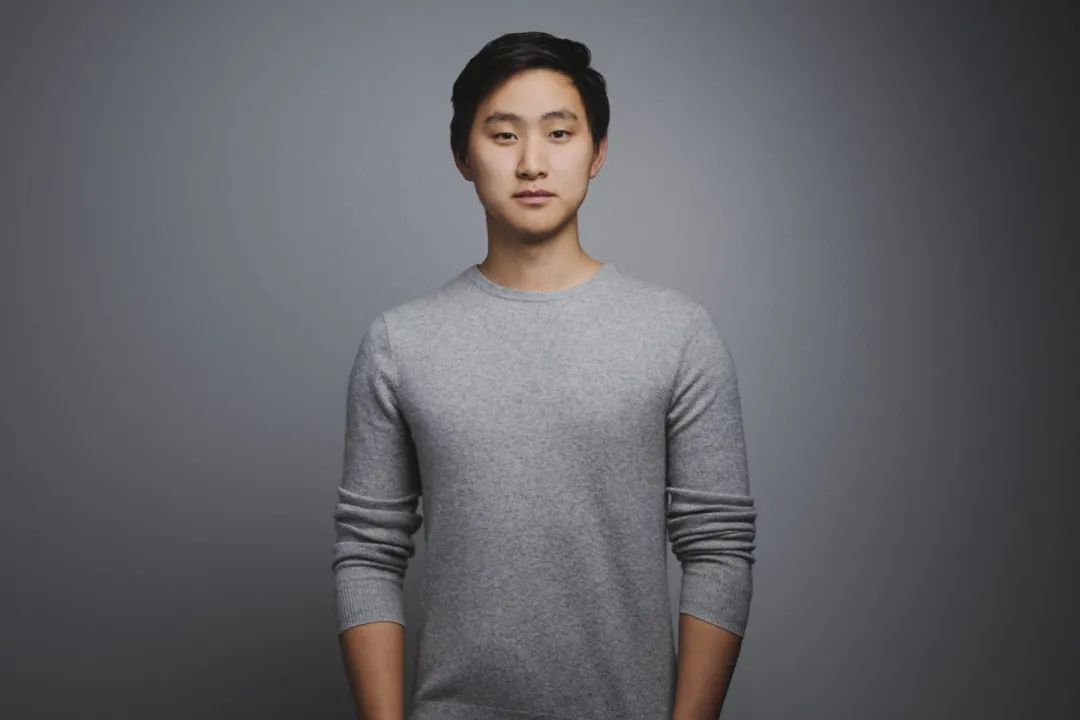
Alexander Wang
Wang's resume belies his age: born in 1997 to physicist parents, he exhibited remarkable talent in math and computer science from a young age. He was selected for the U.S. Math Olympiad training team in 2013, joined the U.S. Physics Olympiad national team in 2014, and was a USACO finalist from 2012 to 2013. As a teenager, he worked as a software programmer at Quora.
After briefly attending MIT and working as an algorithm developer at Hudson River Trading, he dropped out in 2016 to found Scale AI. This company, focusing on AI data annotation and model evaluation, has swiftly become one of Silicon Valley's most influential AI enterprises, catapulting Wang into billionaire status overnight. The industry hails him as the "next Musk."
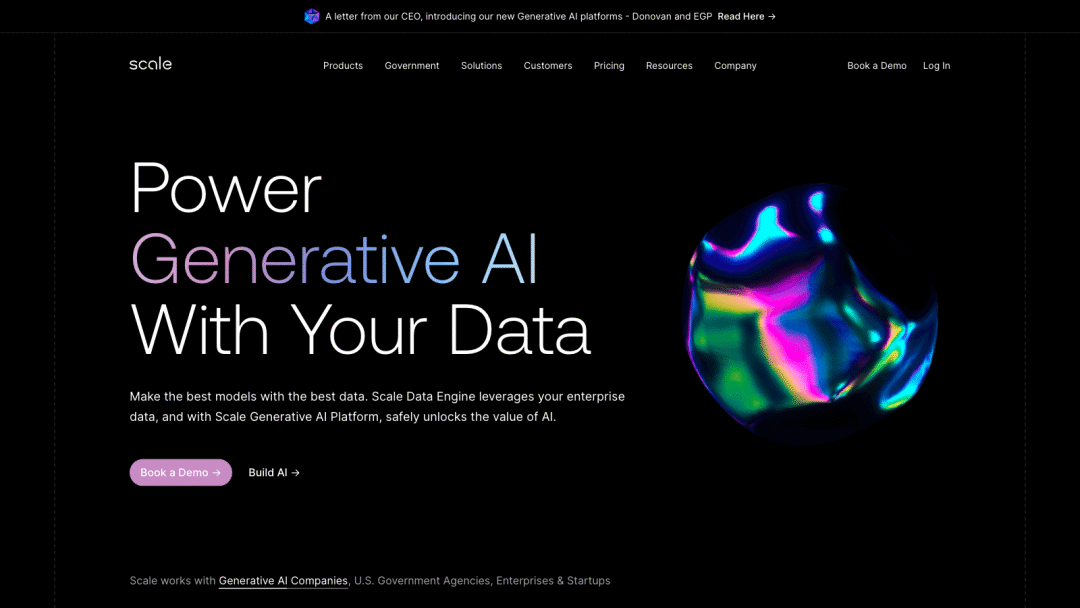
On January 22, 2025, Wang paid for a full-page Washington Post advertisement, an open letter to then-President Trump titled: "Dear President Trump, America Must Win the AI War."
(Original text: "Dear President Trump, America Must Win the AI War.")
While his "war narrative" faced opposition, such as a 2025 Qatar Cyber Summit vote on his "AI War Theory" where he garnered fewer than 10 supporters, the Trump administration's attention led to a White House meeting and a military AI project, Thunderforge (developing AI for battlefield decision-making), with the Department of Defense.
He is indeed a formidable AI player that China should keep a close eye on.
References:
1. "One Person Offers $100 Million, Silicon Valley Giants Frantically Compete for Chinese Students" by Bi Yajun, Huashang Taolue
2. "Breaking News! Zuckerberg 'Raids' OpenAI Core, Four Top Chinese Talents Poached" by AI Cambrian Explosion
3. "Crazy Poaching of Chinese AI Talents in Silicon Valley! Zuckerberg Takes Away 4 OpenAI Researchers in a Package" by ZhiDongXi

